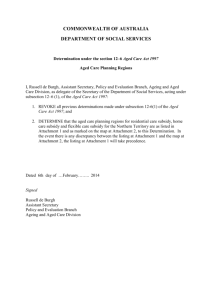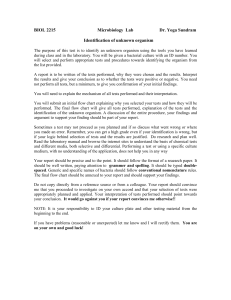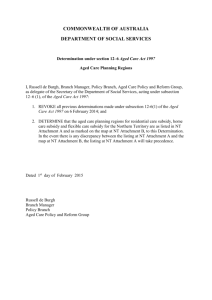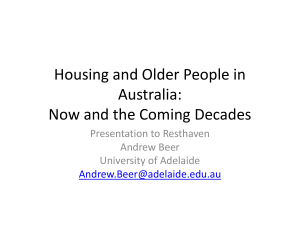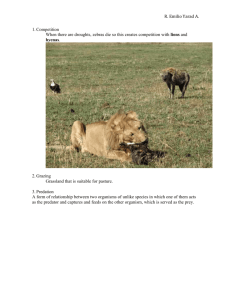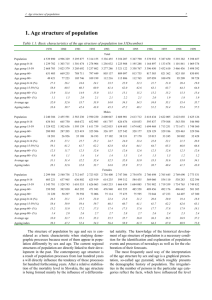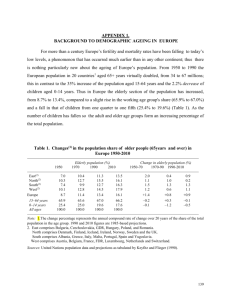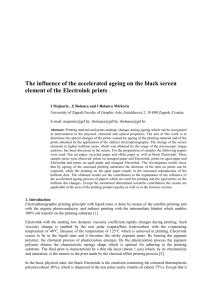THE PROBLEM OF OLD AGE P. MANN From the "Russky Golos" Sunday
advertisement
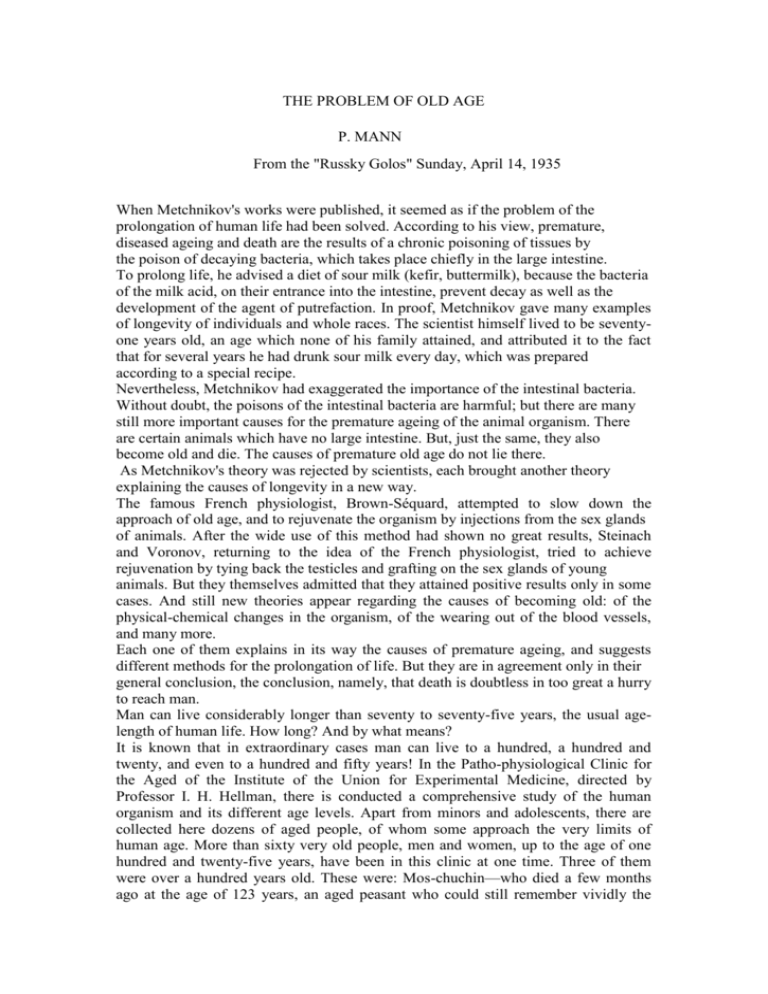
THE PROBLEM OF OLD AGE P. MANN From the "Russky Golos" Sunday, April 14, 1935 When Metchnikov's works were published, it seemed as if the problem of the prolongation of human life had been solved. According to his view, premature, diseased ageing and death are the results of a chronic poisoning of tissues by the poison of decaying bacteria, which takes place chiefly in the large intestine. To prolong life, he advised a diet of sour milk (kefir, buttermilk), because the bacteria of the milk acid, on their entrance into the intestine, prevent decay as well as the development of the agent of putrefaction. In proof, Metchnikov gave many examples of longevity of individuals and whole races. The scientist himself lived to be seventyone years old, an age which none of his family attained, and attributed it to the fact that for several years he had drunk sour milk every day, which was prepared according to a special recipe. Nevertheless, Metchnikov had exaggerated the importance of the intestinal bacteria. Without doubt, the poisons of the intestinal bacteria are harmful; but there are many still more important causes for the premature ageing of the animal organism. There are certain animals which have no large intestine. But, just the same, they also become old and die. The causes of premature old age do not lie there. As Metchnikov's theory was rejected by scientists, each brought another theory explaining the causes of longevity in a new way. The famous French physiologist, Brown-Séquard, attempted to slow down the approach of old age, and to rejuvenate the organism by injections from the sex glands of animals. After the wide use of this method had shown no great results, Steinach and Voronov, returning to the idea of the French physiologist, tried to achieve rejuvenation by tying back the testicles and grafting on the sex glands of young animals. But they themselves admitted that they attained positive results only in some cases. And still new theories appear regarding the causes of becoming old: of the physical-chemical changes in the organism, of the wearing out of the blood vessels, and many more. Each one of them explains in its way the causes of premature ageing, and suggests different methods for the prolongation of life. But they are in agreement only in their general conclusion, the conclusion, namely, that death is doubtless in too great a hurry to reach man. Man can live considerably longer than seventy to seventy-five years, the usual agelength of human life. How long? And by what means? It is known that in extraordinary cases man can live to a hundred, a hundred and twenty, and even to a hundred and fifty years! In the Patho-physiological Clinic for the Aged of the Institute of the Union for Experimental Medicine, directed by Professor I. H. Hellman, there is conducted a comprehensive study of the human organism and its different age levels. Apart from minors and adolescents, there are collected here dozens of aged people, of whom some approach the very limits of human age. More than sixty very old people, men and women, up to the age of one hundred and twenty-five years, have been in this clinic at one time. Three of them were over a hundred years old. These were: Mos-chuchin—who died a few months ago at the age of 123 years, an aged peasant who could still remember vividly the events of the past century, the feudal estate, the "freed" peasants, he himself receiving ten kopeks a day for his work. The oldest inhabitant of Moscow since Moschuchin's death is Zirulnikov, 112 years, and then Balascheva, 105 years, who was witness to the funeral of Nicholas I. Among the old people, less than a hundred years of age, is the old "partisan" Aksenova, 75 years old, who took an active part in the Partisan Movement in Siberia and had been driven back more than once through Czechoslovakia, and who had taken part in battles and often made marches of 60 kilometers in 24 hours. Then, there is the foreignlanguage teacher, Pasternatzkaya, 83 years old, who even last year went iceskating in brilliant competition with the young people. What have the observations shown? The study of the long-lived has brought us to the conclusion that, aside from the outer, social causes which, for a long span of life, have an enormous part to play, hereditary factors have also a great significance. Almost all the very aged had had completely good health during their whole life! Many of them had retained their memory and their mental faculties. The majority looked much younger than their years. They were never in the least sick. This characteristic brought the scholars to the extremely important idea of the presence in many of them of inborn immunity to infectious diseases. This biological quality seems to be one of the hereditary factors which characterize those inner conditions under which man may live to a great age. There are also other extremely important results of the observations. For instance, the observation of the differences between very old and very young people has a great scientific significance. Is the blood of the aged normal? This question has received a final answer: the blood of the aged has been found to be in a normal state, and to differ very little from the blood of younger people. At the same time it has been shown that long-lived people retain their full physical capacity, in particular the sex function, for a very long time. On comparison of the results of investigations of juveniles and aged, it was possible to establish a fundamental law conformity in the development of man, and to observe functional changes which are determined by the physiological peculiarities of man at different age levels. The discovery of these laws gives a new possibility for the solution of the problem of old age in general and of its separate important elements, and especially of that question, which has long interested science, of the preservation to a great age not only of physical but of mental capacity. Since the work of Brown-Séquard and Metchnikov, this scientific idea has made great progress. The doctrine of the glands of inner secretion has been greatly developed. The latest findings in the field of hormones have brought much that is new. One aim of the work of Professor Hellman's clinic is to make a thorough critical survey of the different scientific theories about the causes of longevity, in order that on this basis they may help to solve the problem of a natural and healthy old age, and to find the way to prolong the life of man. The work has just commenced. Many investigations, observations, theories and practical deductions lie ahead. But there is no doubt that the only way to arrive at a solution of this interesting scientific problem is by the comprehensive study of man from birth to old age—the study of the human organism through the combined efforts of physiologists, biochemists and physicians, as it is being carried out in the Institute of the Union for Experimental Medicine. This method has opened new and great possibilities to Soviet Russian science.

